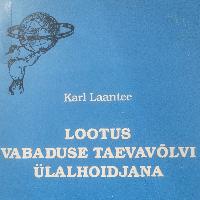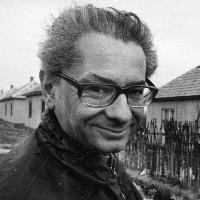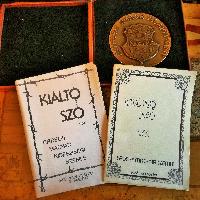The collection contains documents about Estonian emigré communities in the West, primarily on political and religious subjects. Additionally, it includes material in the Estonian language about the Voice of America radio station. Furthermore, the collection boasts extensive material about the dissident movement in Estonia in the 1980s.
-
Vieta:
-
Tartu Wilhelm Struve 1, Estonia 51003
-
Temos:
-
Charakteringi eksponatai:
István Kemény’s collection (mostly recorded interviews) concerns sociological research on the Roma from 1971. The project analysed the problems faced by the Roma in Hungary, which was a taboo topic at the time, since it was linked to another, perhaps even more important taboo, namely poverty, which officially did not exist, but which was very real and particularly dire among many Roma communities.
-
Vieta:
-
Budapest Arany János utca 32, Hungary 1051
-
Temos:
-
Įkūrimo data:
-
Charakteringi eksponatai:
In 1969, Reverend Canon Dr. Michael Bourdeaux, along with political scientist Peter Reddaway, diplomat and writer Sir John Lawrence and Soviet historian Leonard Schapiro, set up the Center for the Study of Religion and Communism, later known as Keston College and Keston Institute. It soon grew into a widely known British human rights organization and a resource center, unique in a way, as its field of expertise focused on church-state relations and persecutions of religious believers behind the Iron Curtain. From its foundation, the creation and development of an archive of documentation was a primary aim for Keston. Today, the Keston Archive and Library remains a unique collection of primary-source material on religious life and religious persecutions in socialist countries, containing, among other things, the world’s most extensive collection of religious samizdat. The Keston collection fills an important gap between state historical records and official church histories, giving voices to ordinary believers in their everyday struggle to freely express their faith.
-
Vieta:
-
Waco South 5th Street 1429, United States of America 76706
-
Temos:
-
Įkūrimo data:
-
Charakteringi eksponatai:
Avantgarde fashion designer Tamás Király’s legacy, which criticized the uniformity and mediocrity of the contemporary cultural canon, represents an important, unique counter-cultural creation of the late socialist period. Furthermore, it is an important source for an understanding of a crucial counter-cultural attitude: conscious reflection on absence.
-
Vieta:
-
Temos:
-
Įkūrimo data:
-
Charakteringi eksponatai:
The Kiáltó Szó – Balázs Sándor Private Collection in Cluj-Napoca contains the second Transylvanian Hungarian samizdat magazine issued under Ceaușescu’s regime and offers insight into the democratic resistance and the human rights struggle of the time. At the same time the samizdat is an example of the pre-1989 Hungarian–Romanian rapprochement, in which the idea of shared destiny secured a common ground for minorities and the majority alike.
-
Vieta:
-
Cluj-Napoca Strada Donath, Romania 400000
-
Temos:
-
Įkūrimo data:
-
Charakteringi eksponatai:





